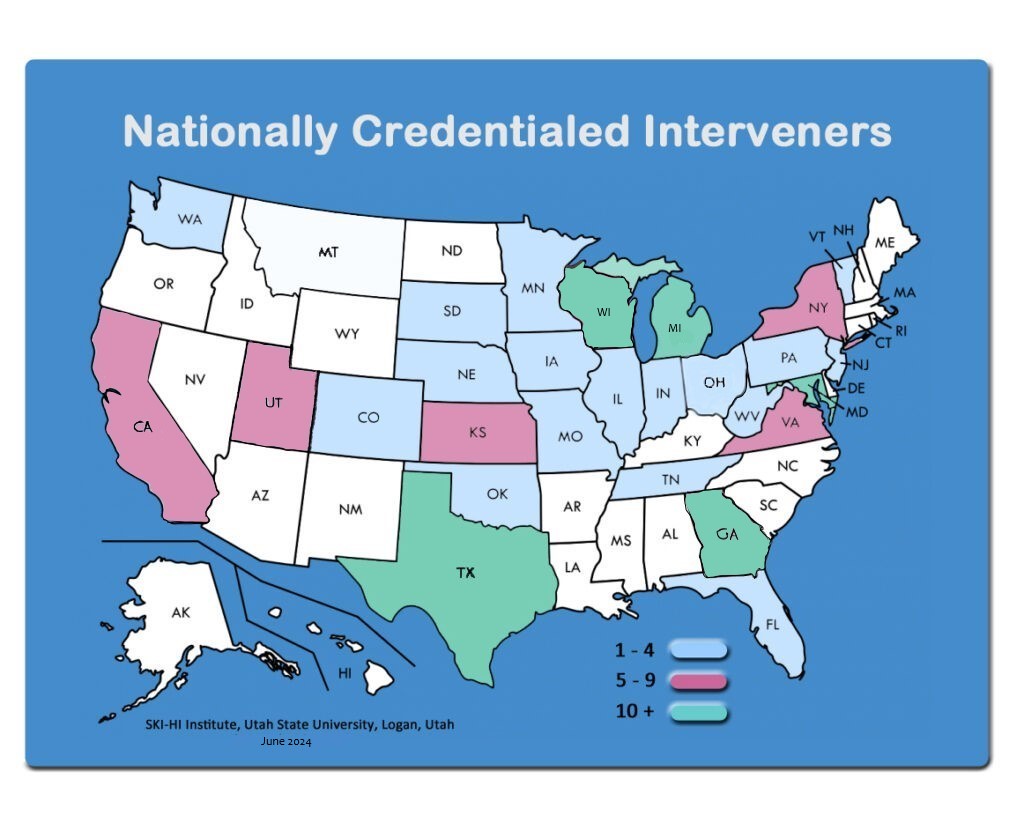
We are proud of our steadily increasing list of credentialed interveners and the work they are doing in the field. The following is a list of interveners who have received the National Intervener Credential through the National Intervener & Advocate Association (NIAA) and the National Resouce Center for Paraeducators, Interveners, and Related Service Providers (NRCPara).
To advance the field of intervener services, interveners need to be recognized as “related service providers” rather than paraprofessionals, and their training must be completed through the higher education pathway, just as other related service providers are educated. The National Intervener & Advocate Association (NIAA) wholeheartedly supports university training as the path to credentialing. NIAA recognizes the intervener practice cannot survive and thrive at the paraprofessional level. The intervener practice must evolve to be recognized and supported similar to the evolution of the sign language interpreter practice. Experience has shown that higher education training is the way to have the intervener practice become recognized, valued, and sustained over time.
Credentialed interveners are listed by state. A key is provided below.
California
Kaylyn Abbott (NIAA)
Ciara Gutierrez (NRCP & NIAA)
Patricia Houlihan (NRCP)
Carley Jones (NIAA)
Katherine (Mirassou) Long (NRCP)
Olivia Maldonando (NIAA)
Victoria Olea (NIAA)
Taylor Nicole Smith (NRCP & NIAA)
Colorado
Cassandra (Kooyers) Waterbury (NRCP)
Florida
Andrew Brosseit (NRCP)
Mary Ellen Buck (NRCP)
Linda Hall (NRCP)
Maria Solita Zeigler (NRCP)
Georgia
Molly Boling (NIAA)
Taylor Briggs (NRCP)
Amy Dusenberry (NRCP->NIAA)
Taja Evans (NRCP & NIAA)
Alisa Finkle (NRCP)
Stephanie Garrett (NRCP->NIAA)
Elizabeth Green (NRCP)
Jennifer Kelley (NRCP)
Charissa N. Shaw (NIAA)
Sarah Shaw (NRCP & NIAA)
Illinois
Jennifer Bradfield (NRCP)
Omar el-Azhari (NRCP)
Mary Romer (NRCP)
Indiana
Bonita Wesolowski (NRCP)
Iowa
Sandra Harbaugh (NRCP)
Kansas
Amy Butterfield Hunter (NRCP)
Zoe Anne Deschaine (NRCP)
Nicole Drake (NRCP)
Carry Hafley (NRCP)
Lauro O’Neal (NRCP)
Lisa Storm (NRCP)
Porntida Treemaneekarn (NRCP)
Randy Walling (NRCP)
Cherie Stanley (NRCP)
Maryland
Carrie Crawford (NRCP)
Kari De La Viez (NRCP)
Pamela Felder (NRCP)
Jene Griffin (NRCP)
Lucretia Heard-Murrill (NRCP)
Elizabeth Hoyt (NRCP)
Donna Knight (NRCP)
Darlene Lindsey (NRCP)
Amanda Morisi (NRCP)
Judy Ramsey (NRCP)
Alicia Rankin (NRCP)
Jacob Rasel (NRCP)
Patricia Sammons (NRCP)
Michigan
Nichole Bouchard-Harrison (NIAA)
Brenda Bujold (NRCP)
Diana Campbell (NRCP)
Dannielle Noelle Flick (NRCP)
April Garbarino (NRCP)
Allyson Gould (NRCP)
Lisa Graham (NRCP & NIAA)
Amy Harrison (NRCP)
David Haske (NRCP)
Lori Janczewski (NRCP)
Bobbi (Greer) Juengel (NRCP)
Anita Kaatz (NRCP)
Angela Katcher-Battani (NRCP)
Tawni Klein (NRCP)
Rebecca Ann Lewis (NRCP & NIAA)
Carol Molpus (NRCP)
Ann Mose (NRCP)
Virginia Petrie (NRCP)
Cindy Pruyne (NRCP)
Kimberly Sharp (NRCP)
Kathleen Silvers (NRCP)
Elizabeth Stuart (NRCP & NIAA)
Caitlin Suchner (NRCP)
Jessica Truax (NRCP)
Bridget Wakefield (NRCP & NIAA)
Caitlin Woodward (NRCP)
Sarah Woodworth (NRCP)
Minnesota
Colleen Hofer (NRCP)
Missouri
Suzanne Pollan (NRCP)
Nebraska
Jennifer Addison (NRCP)
New Jersey
Alyssa Lacey Skog (NRCP)
New York
Yvette Brown (NRCP)
Amanda Crayton (NRCP)
Samantha Durkee (NRCP)
Christine Guilbeault (NRCP)
Clarissa Hastings (NRCP)
Christine Jay (NRCP)
Ohio
Tracy Smith (NIAA)
Oklahoma
Brandy Haynes (NRCP)
Nancy Moua (NRCP & NIAA)
Pennsylvania
Catherine Morgan (NRCP)
Tammi Morgan (NRCP)
Josephine Udo-Utun (NIAA)
South Dakota
Jeanie Schmidt (NRCP)
Tennessee
Jennifer James (NRCP)
Ida Pollock (NRCP)
Texas
Amie Abernathy (NIAA)
Melissa Almazan (NRCP)
Munmun Basu (NRCP)
Ruthanna (Mimi) (Garcia) Cisneros (NRCP)
Chelsea Dean (NRCP)
Melissa DeBuigny (NRCP & NIAA)
Amy Faught-Batterson (NRCP)
Kimberly Huston (NRCP)
Catherine Irwin (NRCP)
Elizabeth Joyner Cox (NRCP)
Helen July (NRCP & NIAA)
Justin Kailer (NIAA)
Cylinda Konvicka (NRCP & NIAA)
Christopher Mafana (NRCP)
Luis Miranda (NIAA)
Patsy Moss (NRCP)
Britney Nicole Taylor (NRCP & NIAA)
Maria Ortiz (NRCP)
Angelique Smith Landry (NRCP & NIAA)
Aneisha Waugh (NRCP)
Inyka Williams (NRCP)
Utah
Mary Lauritzen (NRCP)
Bethany J. Lundgreen (NIAA)
Jolyn Nielsen (NRCP)
Trudi O’Brien (NRCP)
Erika Wilson (NRCP)
Vermont
Kelly Johnson O’Neill (NRCP)
Danielle Koonz (NRCP & NIAA)
Jeanne Neu (NRCP)
Virginia
Karin Hershey Fitzgerald (NIAA)
Donna-Lee Robertson (NIAA)
Terri Robinson (NRCP)
Amy Tussing (NRCP)
Erin Yanez (NRCP)
Abbey Barron-Holley (NRCP)
Dawn Koontz (NRCP)
Washington
Teresa Lacy (NRCP -> NIAA)
Brooke Lessley (NRCP)
Jennifer Pellegrini (NIAA)
Robyn Sturgis (NRCP)
West Virginia
Kimberly Ann Calhoun (NRCP)
Priscilla Epperly (NRCP)
Wisconsin
Lindsey Bauer (NIAA)
Nichole Bouchard (NIAA)
Lisa Chmielewski (NRCP)
Kimberly Gietman (NRCP)
Sandra Hein (NRCP)
Katelin Herbst (NIAA)
Jeanne Knickelbine (NRCP)
Lisa Meredith (NRCP)
Barbara Seefeldt (NIAA)
Lisa Spykstra (NRCP)
Janelle Streff (NRCP)
Gayle Lynn Tait (NIAA)
Sarah Whaley (NIAA)
Mary Wilcox (NRCP –>NIAA)
KEY TO CREDENTIALS:
NRCP = National Resource Center for Paraprofessionals
NIAA = National Intervener & Advocate Association
NRCP & NIAA = as of 2020, NIAA transitioned to providing an intervener credential departing from NRCP
NRCP -> NIAA = Interveners originally credentialed through NRCP were re-credentialed through NIAA
Meet Some Credentialed Interveners
Tricia Houlihan
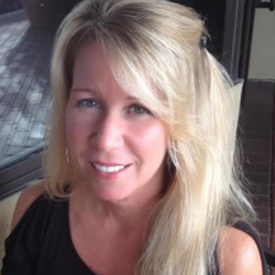
“I am very honored and proud to be the first credentialed intervener in my great state of California. This educational achievement has come through a very long time of efforts, passion, and most importantly my belief in the abilities and potential of the incredible population of young individuals that I interact and work with on a daily basis.” ~Tricia
Christine Jay
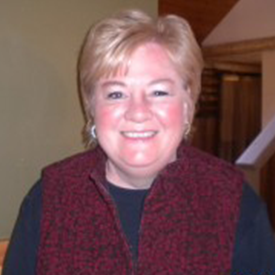
“To be a trained Intervener means the world to me, but not only to me, but to my student, as well. He knows things are different now. To be a credentialed Intervener means that I have the knowledge and comfort in knowing that I can make a difference in this child’s life. To know how to bridge the world for him is invaluable. The training was rigorous through Utah State University, but I knew I was going to be well trained and ready to teach my student. To see my student feel so good about himself, makes me feel good too. He knows he has choices in life, and he makes his choices known. This was not happening before I became an Intervener. I am making a difference in his life!”
I want to thank my family, colleagues and my student for supporting me during my Intervener training. As Robert Frost said, “I am not a teacher, I am an awakener!” ~ Chris
Mimi Cisneros Garcia
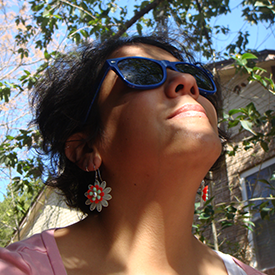
“Being recognized nationally as a professional who has trained extensively and been shown competent to work with children with deafblindness is a very proud moment in my life. To be one of the first to receive not only the certification, but the credential is an honor!
My experiences working with deafblind children have been eye opening. My life has been changed since realizing what the world is to them as compared to us. I try not to take for granted the world around me, and I strive to share my experiences with my students as well as my children. That is how we learn, through sharing and being exposed to ideas that we never knew existed. Summing it up in an old Chinese proverb, “Learning is a treasure that accompanies its owners everywhere.”
I love being part of this exciting world in teaching, and I hope to keep helping change the lives of deafblind children for the better as they have done for me.” ~ Mimi
Jeanie Schmidt
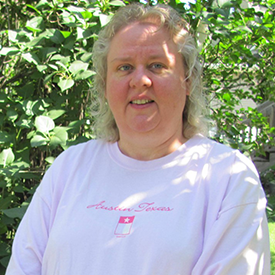
“Intervening is like gardening. You invest so much time, effort and energy into a child, without immediate results, until one day you can almost see the cogs turning and you watch as the child puts information and knowledge together, and they understand. You watch them bloom like a beautiful flower. Those precious moments make all the hard work worth it. Now I truly know what Anne Sullivan felt at the water pump with Helen. It is a true honor and privilege to be counted among the first group of individuals to receive National Intervener Credentialing here in the United States. The journey on the way to credentialing was a challenging one, but thanks to Linda Alsop’s program at Utah State University and the support of my family, friends, co-workers, and colleagues, I now have the vital tools necessary in order to continue on this path of being an effective intervener.” ~ Jeanie
Jennifer James
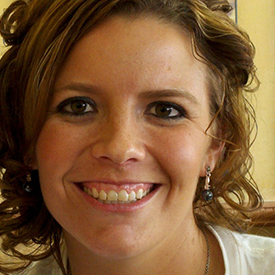
“A National Intervener Credential is something that I am honored to be one of the first to have received. I never realized the effects that an experienced and well-prepared Intervener could have on a deafblind child until I witnessed it firsthand. The more training I received in the courses for obtaining the credential, the more my student benefited and improved. It is important that parents, teachers, and administrators realize how important an Intervener is in the life and education of a deafblind child. An Intervener can literally change a child’s life, and this national credential puts us one step closer to bringing more attention to the importance of Interveners. I am incredibly excited to be a part of this new chapter in education!” ~Jennifer
Tammi Morgan
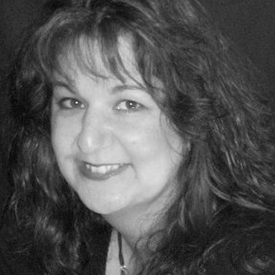
“I am honored to be one of the first few students to recieve the National Intervener Credential. One of my favorite quotes: “You can count the seeds in an apple, but you can’t count the apples in a seed,” and this same comparison comes to mind with the newly established National Intervener Credential and standards. This National Credential sets the standards for Interveners to become recognized as professionals who are trained and competent to work effectively with children with deafblindness. These Intervener standards are now nationally definable. That’s exciting! But what is even more exciting is the number of lives that can be affected as a result. There are so many children with deafblindness out there, and they all want to be heard and to make sense of the world around them. Unfortunately, many times they are left on the outside looking in by being served by personnel unequipped to “hear” them or to know how to respond to them. This leaves the children (and their families) feeling stressed, confused, and helpless. Giving children the tools and information to become the best they possibly can to not only learn but to also branch out into the world and join others with their unique gifts and talents – this is what I’m most excited about! That ripple effect will be far reaching, and from where we stand now, innumerable! “
“National Credentialing is the steppingstone to access for many children with deafblindness. That is what it’s all about, and to that I cheer: WOOHOO!!” ~Tammi ~ “Interveners give meaning to life” ~ T. L. Morgan
Terri Robinson
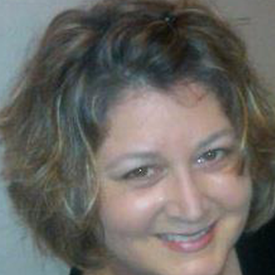
“I am grateful to my employer, The Virginia School for the Deaf and Blind, and especially my supervisor, Kathy Campbell. I am proud to be a part of such a top notch team of Interpreters/Interveners.” ~ Terri
Lacey Skog
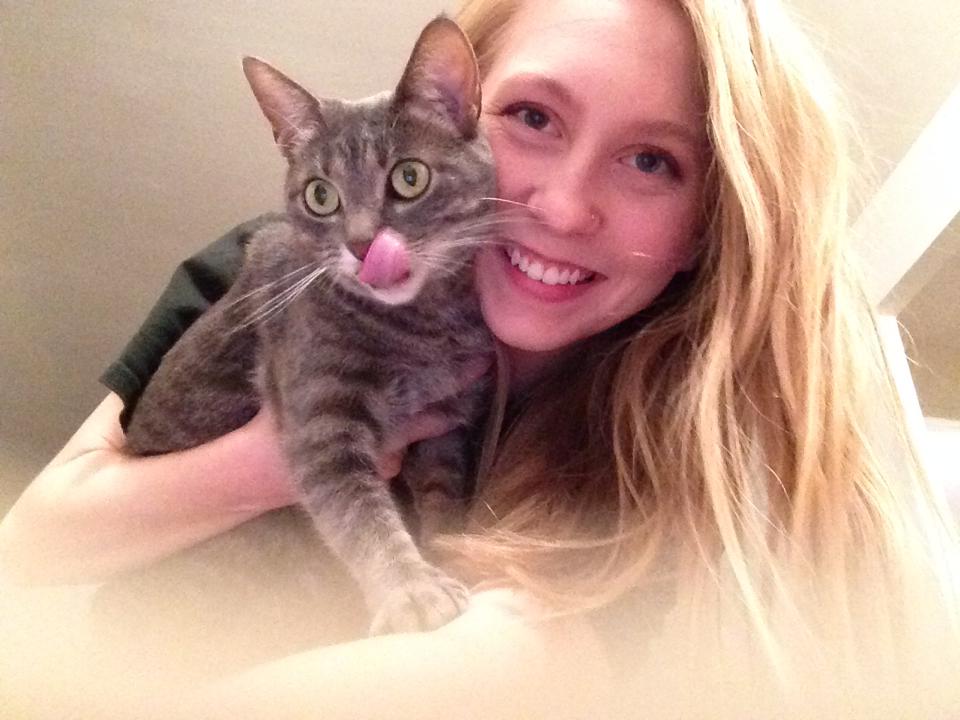
“Once I finished my training three years ago, I began working with a student who has Usher Syndrome, and we are just finishing up second grade. He has bilateral cochlear implants, we use an FM system in the classroom, plus he and I are fluent in ASL, which is his first language. He and I are also becoming proficient in using the braille code. Luckily for me, his family fought hard for him to receive an intervener in a state that doesn’t recognize us, and I’m fortunate enough to have the option to continue working with him until he graduates from High School.
We have built a great rapport during these last few years, which is important to work in this field successfully. I have been able to assist in facilitating and bridging gaps with him in all different types of scenarios—in the classroom, around the school, and during after school clubs, field trips, and O&M camp.
Socializing, promoting independence, and increasing self-advocacy were our most important goals outside of every day education. In this last year, my team and I have seen huge improvements in active communication among his peers and adults. He is also better at deciding for himself when and if he needs any assistance. I’ve also gotten really good at being able to anticipate times he may or may not need me. I will continue to bridge any communication gaps he may face, however, continuing to promote independence and self-advocacy over the next 10 years that we have together, will be vital in getting him where he wants and can be in the future.
Seeing him progress has made everything I did (four years of college, one year of intervening training, finding a job, and moving across country for said job), worth all the work I put in during those five years. On top of that, I am extremely lucky that my first intervening job has provided me a wonderful team that collaborates and works hard together. Having a strong team makes all the difference. I couldn’t have wished for a better school, team, or student to kick-start my career in intervening.” ~ Lacey
Vicki Spencer
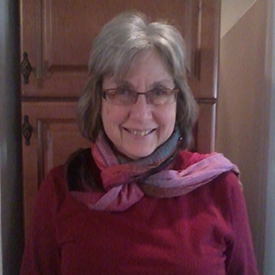
“This National Credential opens the door for Interveners to attain full recognition for the part we play in the lives of deafblind individuals. I am proud to be one in this first group to achieve this honor under Linda Alsop’s tutelage.” ~ Vicki
